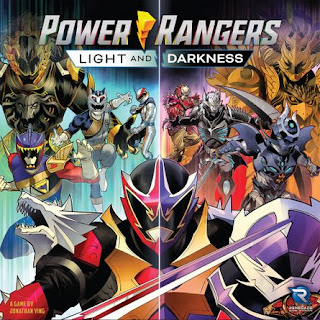Play is not the same thing as games. Play is a state of creativity and imagination that is objectively good for you. One of the ways us humans make play easier is by designing games. I'm pretty sure at this point the point of a game is whether or not it actually makes play easy to enter into. So long as a game can get someone into play then it is doing its job.
First off, the cards. They’re not too wordy, but the concepts they frequently communicate allow for a decent amount of depth for what they are. The cards and how they interact have a learning curve to them, but once a player understands what they’re looking at they find a responsive and intuitive ruleset, so much so that letting yourself lean into it is the trick. Looking for structure in the game rules themselves will only lead to frustration; there is no rule telling you what to do. Most new players I’ve introduced to the game sit there blinking, deerlike, as the structure has no inherently obvious use. “What do I do? When may I do it?”
Heroes of the Grid, in that respect isn’t like most board games at all. The rules are specifically reactive to the conversation at the table. Gameplay hinges off your ability to look at the board and talk about what you see, with friends who aren’t trying to boss you around. The conversation at the table is itself the game. Heroes of the Grid just gives you cards and dice to steer that game in unexpected ways.
I play this game a lot with my sons who, while they don’t really grasp the mechanics of the cards yet, still very much understand this rule: talk and play a card at some point, maybe even roll some of those chonky dice! Other games I’ve thrown at them they like well enough (Lanterns particularly) but time after time they open the box of cards for Heroes of the Grid and we fantasize about when we’ll next get to play.
So now we get to my point: the other day one of my sons was going through the cards as we both pined about being able to play again. My son knows I love playing MMPR Red Dragonshield, colloquially known as Jason Dragonshield. My son asked to see Dragonshield's deck and noticed that I was picking and choosing from the MMPR red cards. He realized I was constructing a deck, that I was making it up. He was stunned; he thougth there was a predetermined list of cards for Jason Dragonshield! I laughed and told him that the game supported you making your own character from the available cards you had. My son's face lit up, and he asked me to show him the deck all over again and explain it to him.
Jason Dragonshield
Team Tactics (Gain energy, someone else plays a card)
Blade Blaster (Dump energy for damage, 1 to 1)
Risky Moves (Take damage to grant bonus dice to another attack)
Lead the Charge (2D attack next attack at +1D)
Haymaker (1D attack, more dice for each shield on top of discard pile)
Power Sword (5D attack, +2D next attack)
Start with Dragon Dagger(3D twice) and Dragon Shield (-3 damage +1D next attack) in hand, giving you a greater than normal hand size.
My son was curious about my choices, so I broke down the tactics of having a leader who could become a serious fighter if he needed to be. I had to break down each card and why it went into the deck. I then grabbed a few more rangers from the box and showed him how to balance the deck, and that there was a huge variety of things that could be done to make exactly what you wanted. I watched as my son's eyes glazed over a second trying to comprehend what he had just been told. He was no longer looking at a box of predetermined options, but an entire box of tools.
So now in the mornings whenever we take "the box" out he asks me how I would combine characters and why. The game went from just being something to do to being a vehicle to actually engage in play. Heroes of the Grid makes an honest attempt to put mechanics at the service of the conversation and off-table creativity, and that's positively impacted my son, who's now realizing their may be more to playing a game than just following the directions and seeing what happens.
It's a really cool thing to watch.
Dunno if this post any other point than that. But there it is.

No comments:
Post a Comment